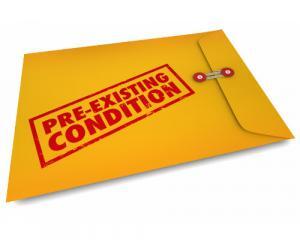
Call Us 24/7 For A Free Legal Consultation






Usually, it takes between four to six weeks to complete the settlement process (this varies on a case-by-case basis). First, the insurance company will require you to sign a release that settles your claim. In this release it will state that you are giving up your right to sue the person, persons or company who are responsible for your injuries. When the insurance company receives the release, you will receive an agreed-upon sum of money in exchange for giving up your claim.

Typically, a personal injury structured settlement or lump sum settlement check is disbursed to your attorney. First, he or she will pay any liens placed on the settlement funds (such as those for medical bills). Attorney’s fees, out-of-pocket expenses, and other possible costs associated with the claim will also be deducted. After all deductions have been made, typically you will receive the balance of the settlement in the form of a check from your own attorney’s office.
There are three key reasons why a personal injury case may take a long time:
If you are still curious about how long a personal injury lawsuit takes to settle, then feel free to give us a call and we can give you an idea of the timeline on your case.
Determining liability for an accident or injury often rests on whether someone was careless or negligent. If liability is difficult to prove, it is unlikely that the defendant’s insurer will make a reasonable settlement offer. Your lawyer will be able to advocate how to proceed if this is the case and your lawsuit has been filed before the statute of limitations for personal injury cases has passed.
There may also be problems with determining damages. For example, if your doctor cannot determine whether the defendant’s negligence caused your injury, then the insurer is not going to make a reasonable settlement offer until you can find a doctor who will testify that the defendant’s carelessness caused your injuries. All of these things can leave you wondering how much you should ask for in your personal injury settlement, but those questions will need a lot of details to get solid numbers for your case.
Insurers will not pay out large settlements until they have done their due diligence, which means investigating every facet of the liability and damages regarding the case.
In addition, insurers are very vigilant in shedding light on every single aspect of a case. In order to acknowledge liability of their insured, they often conduct a recorded statement where you, the plaintiff, will need to recall parts of the accident and what injuries you sustained. This is just one example of many where the insurance company seeks to evaluate damages.
A settlement may take a long time if you are still being treated for your injuries. Settling a personal injury case before you have reached a point of maximum medical improvement (MMI) can be a costly and painful mistake.
You should wait until you are at MMI before settling your case so you and your Colorado Springs personal injury lawyer can put an appropriate value your damages. If you are still being medically treated, there is no way to know if you will fully recover from your injuries. If you accept a settlement before you reach MMI, you may not be compensated for additional medical expenses, disability, lost wages or pain and suffering down the road.
It is best not to settle for less compensation than you deserve. However, if you need to settle your case fast and cannot wait very long for a personal injury settlement check, you should still consult a personal injury lawyer who can advise you of the risks of a quick settlement.
We serve clients injured anywhere throughout the state of Colorado, but we focus on residents of these areas: Colorado Springs, Manitou Springs, Fountain, Briargate, Monument, Black Forest, Pueblo, Canon City, Larkspur, Security-Widefield, Peyton, Castle Rock, Teller County, El Paso County, Elbert County, Park County, Douglas County and beyond.
Consultations are always free and available 24/7 over the phone.